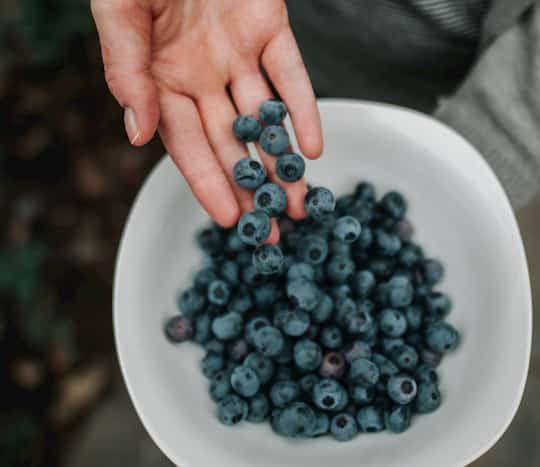Bloating is a frequent symptom of irritable bowel syndrome and is triggered by specific types of diet.
A low-fibre diet can help to reduce the stomach discomfort, pain, bloating, flatulence, and diarrhoea linked to irritable bowel syndrome, research finds.
Typical foods to avoid include:
- garlic,
- artichokes,
- onions,
- Brussels sprouts,
- cabbage,
- peas,
- cereals,
- soy beans,
- celery,
- beans,
- cauliflower,
- leeks,
- bread and pastries made of wheat,
- corn,
- broccoli,
- bananas,
- carrots,
- grapes,
- peaches and figs.
All these foods are known technically as fermentable oligosaccharides, disaccharides, monosaccharides and polyols or FODMAPs.
FODMAPs are resistant to digestion and tend to absorb water.
These fermentable foods are components of what is known as a “flatulogenic” diet.
This tends to increase intestinal gas production due to changes in the microbiota, the microorganisms living in the human body.
FODMAPs are used by gut bacteria as a fuel, resulting in the production of the hydrogen and methane gas responsible for bloating in some people.
They also produce hydrogen sulfide, which produces a similar smell to rotten eggs.
On the other hand, healthy people’s gut microbiota remains unaffected or less disturbed by this type of food.
Professor Giovanni Barbara, one of the microbiota experts who presented this topic at the Gut Microbiota for Health World Summit in Miami, said:
“Recent findings suggest that IBS is linked to clearly detectable gut microbiota alterations.
Additionally, bloating can be related to specific kinds of diet, thus opening up promising paths towards an efficient disease management.”
For many years, conditions such as bloating and IBS were considered a psychological disorder mostly affecting young females with anxiety.
As a result, it seemed to be an imaginary illness and so patients were not treated seriously.
Today around 20 percent of the population in Western countries suffer from IBS, with the most common complaint being bloating.
Diarrhoea, sudden urges to have bowel movements, discomfort and abdominal pain are symptoms of gastrointestinal disorders such as IBS (irritable bowel syndrome).
Professor Barbara said:
“We now know for sure that diets containing low fiber content improve these symptoms significantly.
Recent research results suggest that, compared to a normal Western diet, a diet low in so-called FODMAPs (fermentable oligosaccharides, disaccharides, monosaccharides and polyols) reduces symptoms of IBS, including bloating, pain and passage of wind.”
The study was published in the journal PLoS One (Sloan et al., 2019).

